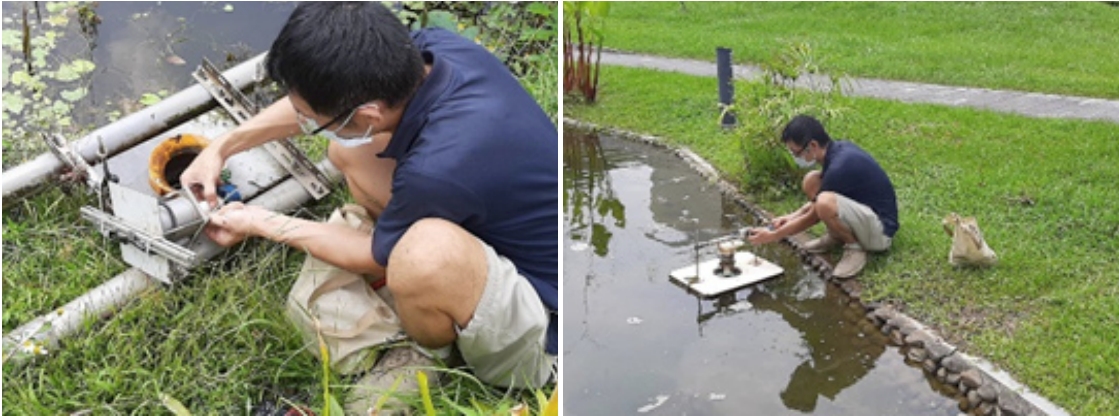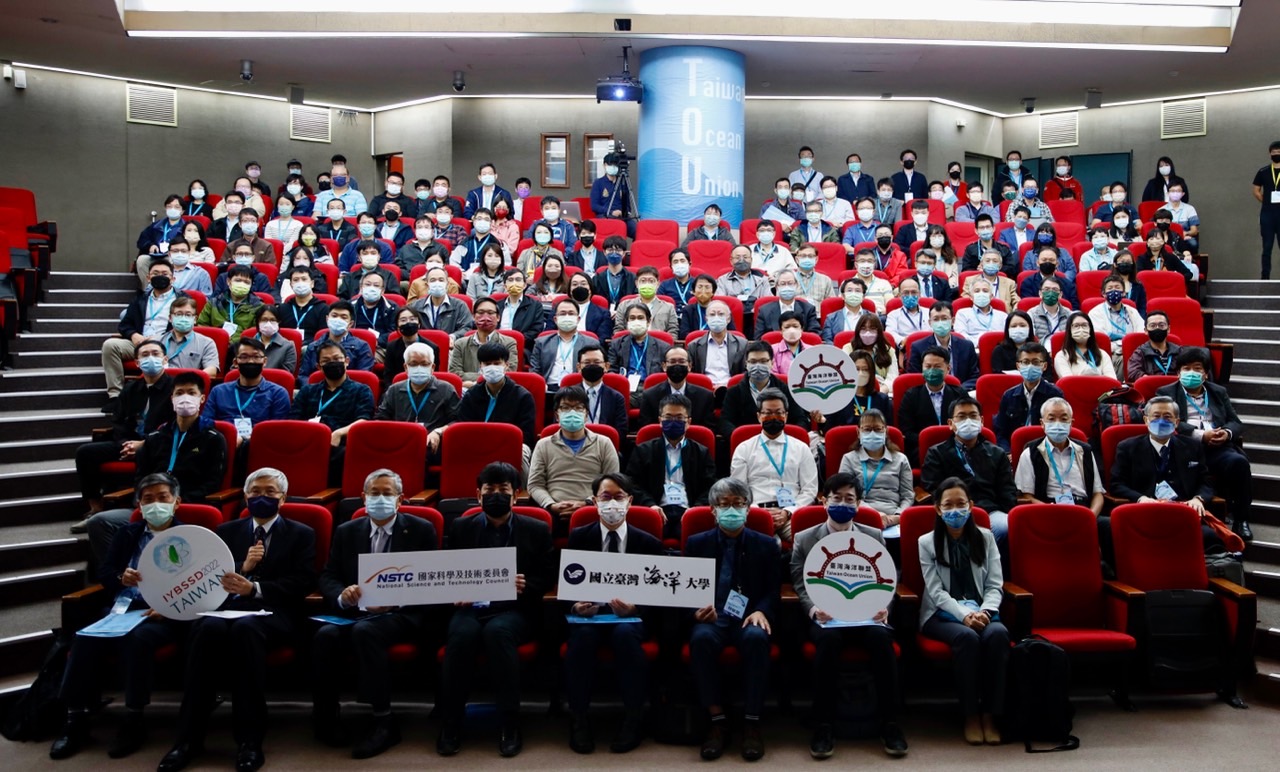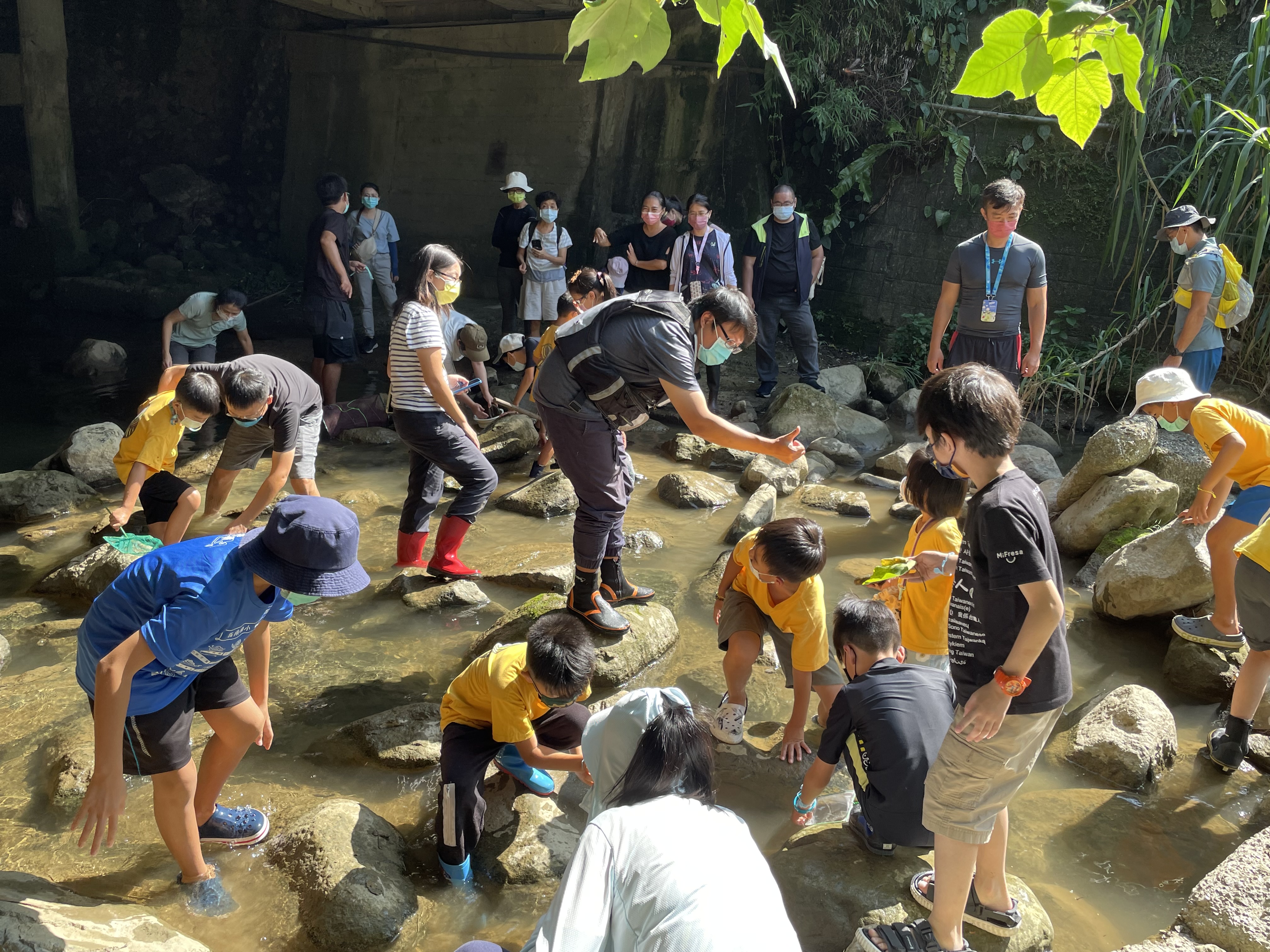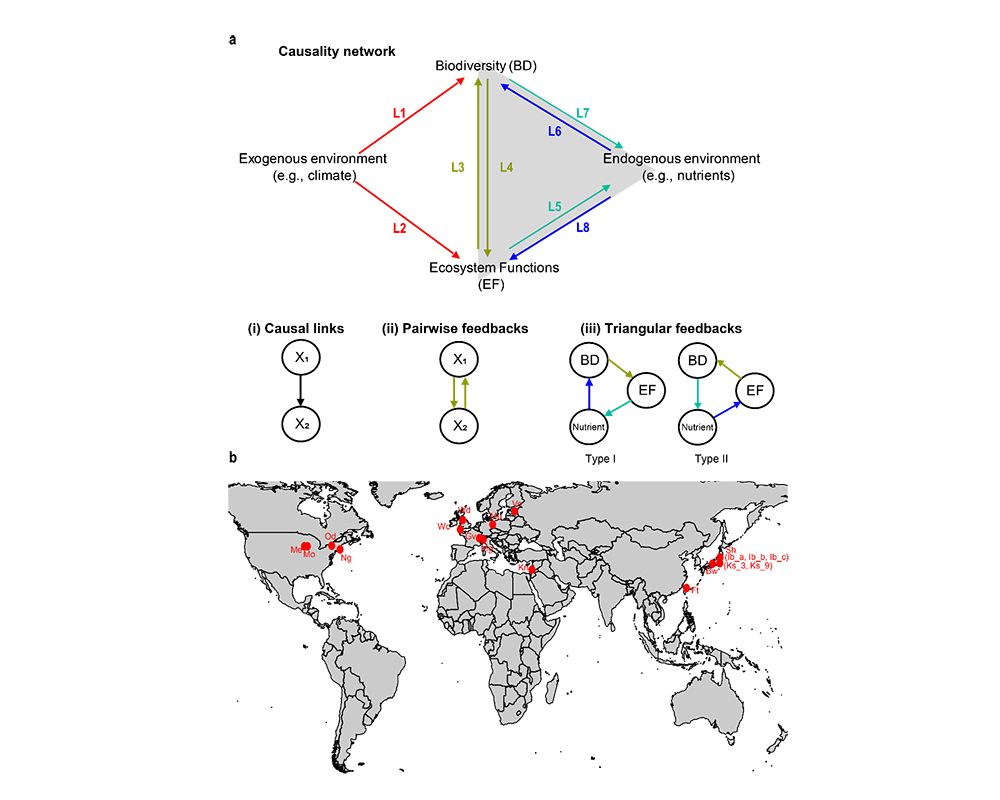2023/10/04
NTU is committed to maintaining ecosystems and their biodiversity (direct work)
NTU is committed to maintaining ecosystems and their biodiversity (direct work)
National Taiwan University is committed to preserving aquatic ecosystems, starting with our campus environment. We focus on ecological maintenance and restoration of the lakes and ecological ponds within the university grounds, which includes the removal of excess algae and aquatic plants. We also collaborate with on-campus experts to research methods for improving water quality, conducting monthly water quality monitoring.
Beyond our campus, NTU collaborates with other higher education institutions to establish the Taiwan Ocean Union, promoting interdisciplinary marine research. We work in partnership with the government to assist and guide the nationwide network of 486 water environmental patrol teams, who engage in activities such as river and beach cleanup, reporting pollution incidents, and community environmental improvements. Furthermore, our university assists in analyzing the characteristics of Taiwan‘s national important wetlands under different conditions to enhance aquatic biodiversity. Through international research teams, we analyze data from global aquatic ecosystems to assess the impacts on these ecosystems.
Campus Lake and Ecological Pond Water Quality Monitoring and Improvement
In our commitment to maintaining aquatic ecosystems, our university regularly conducts water quality monitoring and management for the on-campus lakes using the Biological Environmental Water Quality Management method. We have also enhanced management equipment to improve oxygen levels and water circulation in these bodies of water. Every two months, we engage in aquatic plant pruning to maintain the scenic beauty of these areas and promote increased biodiversity. It is common to observe activities of waterfowl such as the Red-crowned Crane in these lakes.

Taiwan Ocean Union
Our university has joined the Taiwan Ocean Union and is driving progress in three major dimensions: integrating interdisciplinary marine research, enhancing fundamental marine investigations, and advancing critical ocean technology infrastructure. As a part of the Ocean Data and Research Vessel Group, Ocean Observation Technology Group, and Ocean Engineering Technology Group, our university is responsible for monitoring activities in marine waters and establishing a platform for sharing marine research data, all aimed at promoting the conservation of aquatic resources.

Northern Region River Conservation Center - Water Environment Patrol Team
Our university's Department of Environmental Engineering has established the Northern Region River Conservation Center to assist the Environmental Protection Administration in mentoring 486 Water Environment Patrol Teams from various counties and cities. We provide operational strategies and educational training to these teams. Collaborating with the public, communities, environmental organizations, and educational institutions at all levels, we engage in activities such as reporting pollution incidents, participating in river and beach clean-up efforts, and community environmental improvement projects. Additionally, we work to promote the concept of environmental education, enhancing public participation in safeguarding water environments and spreading awareness about the importance of water conservation.

Assisting in the Analysis of Taiwan's National Important Wetlands
Professors from our university's Hydraulic Laboratory assist Taiwan's national important wetlands in analyzing salinity distribution and eco-hydrological characteristics based on different wetland topographies, locations, and vegetation conditions. This analysis provides strategies for wetland management, contributing to the maintenance and enhancement of aquatic biodiversity.
Causal networks of phytoplankton diversity and biomass are modulated by environmental context
Our university's international research team analyzes long-term data from 19 global aquatic ecosystems, quantifying important ecological factors, including algal diversity, ecosystem functionality, and physicochemical environmental factors. Additionally, we reconstruct causal relationship networks within natural systems. This facilitates the assessment of how environmental changes and biodiversity loss may impact ecosystems. It provides a more comprehensive and integrated research framework for future aquatic ecosystem management.





